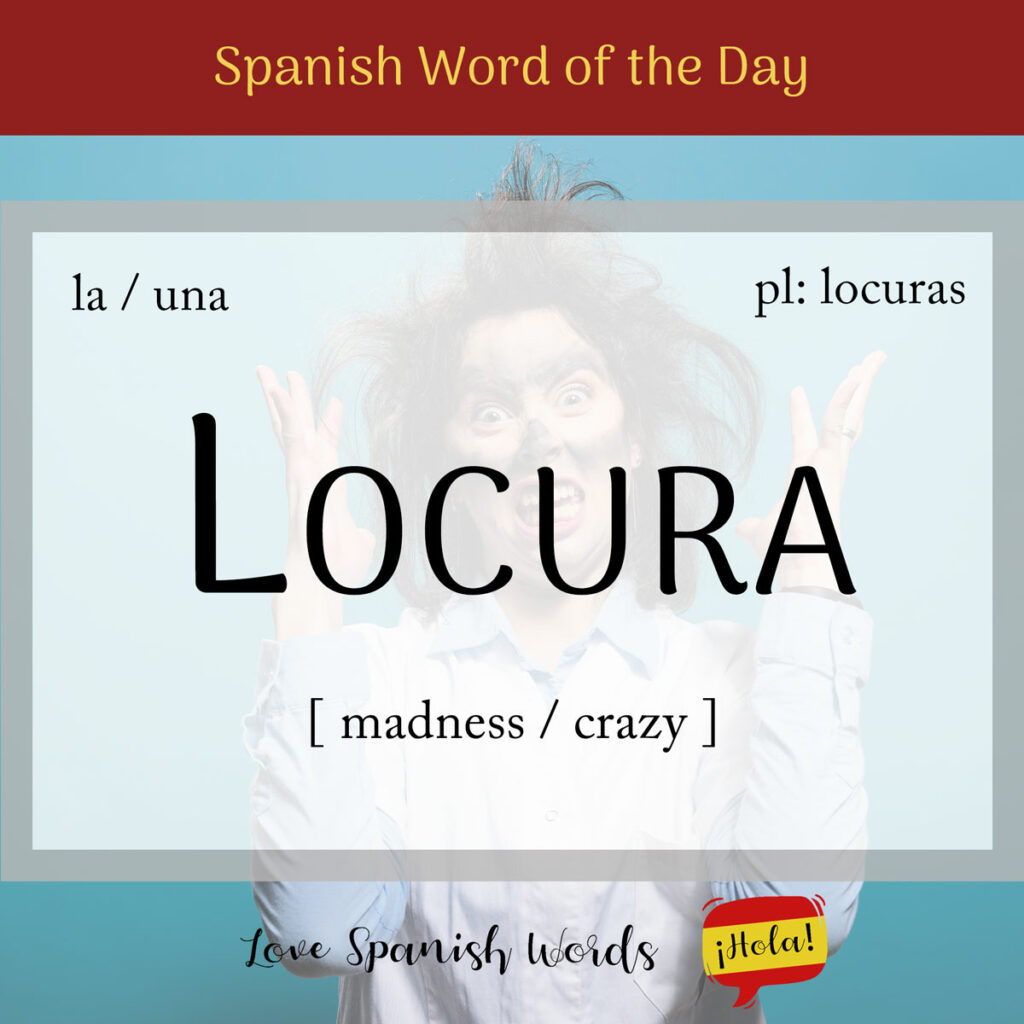Locura is a very common Spanish noun that covers all facets of madness, from mental illness to crazy acts of passion. Let’s take a look at how it is used in context!
Latin American Pronunciation
European Pronunciation

Before we begin, it is worth stating that locura is a feminine noun, and takes the following definite and indefinite articles:
- la locura = the madness
- una locura = a madness
- las locuras = the madnesses
- unas locuras = some madnesses
In its strictest sense, locura refers to a pathological disorder of mental faculties, a concept that can be translated into English as madness or insanity.
La locura lo consumió cuando lo perdió todo.
Madness consumed him when he lost everything.
However, locura can also be used more loosely to refer to acts of craziness that aren’t necessarily indicative of a mental disorder. A great example of this is in the film King Richard, a biographical sports drama about Venus and Serena Williams, in which Arantxa Sánchez Vicario, frustrated by her poor performance against the young Venus during the Bank of the West Classic tournament, yells out ¡Esto es una locura! which means This is crazy / madness!
¡Esto es una locura!
This is crazy!
The expression cometer una locura means to do a crazy thing or to do something rashly, while hacer una locura means to do something silly. Also, meterse en una locura means to get into trouble or to get involved in something crazy.

You can describe the feeling of being “crazy about someone / something” using locura, as you can see from the following expressions.
- locura de amor = crazy in love
- con locura = madly / like mad / like crazy / crazy about
- tener / sentir locura por alguien = to be crazy about someone
Tiene locura por su marido.
She is crazy about her husband.
Finally, in colloquial Spanish, you might hear de locura, which equates to amazing or fantastic in English. For example, un canto de locura can be translates as an amazing song.


